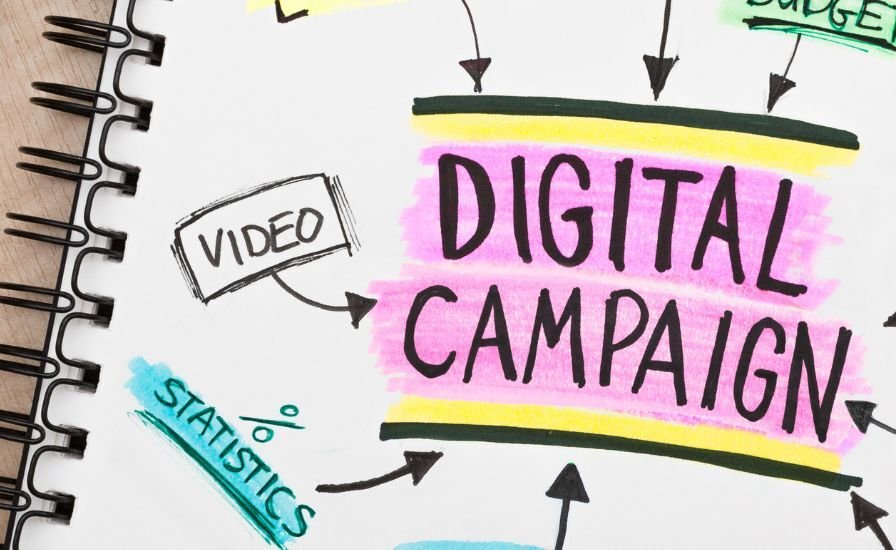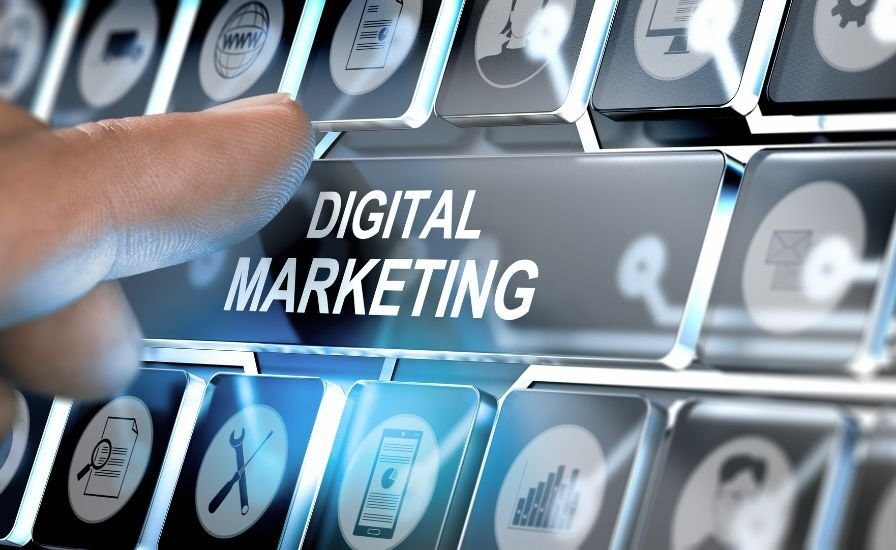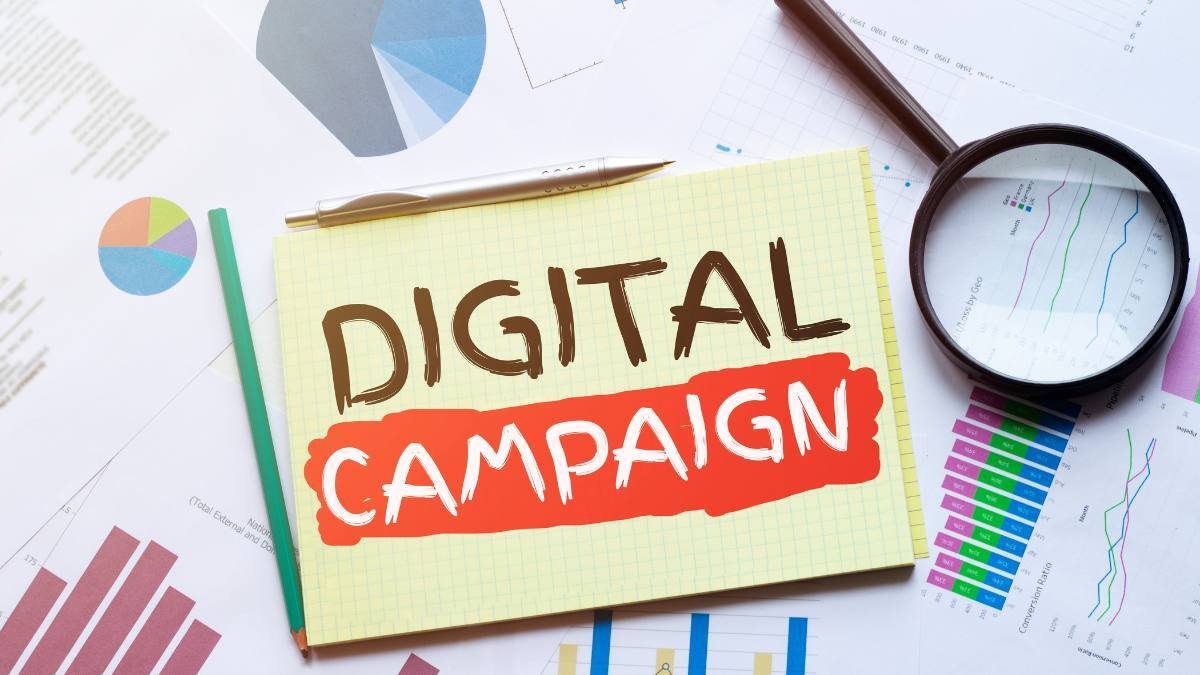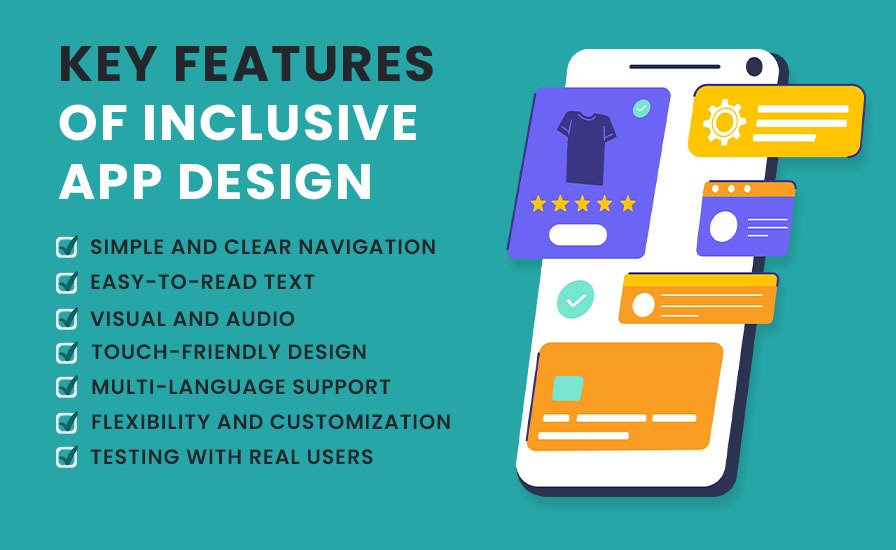Successful Digital Marketing Campaign Checklist For 2024
In today’s fast changing digital world, having a successful marketing campaign is more important than ever. As we move into 2024, new trends and tools are appearing that can help businesses connect with their audience in better ways. But with so many options available, it can be tough to know where to start.

In this blog, we have created a simple and easy to follow checklist that will guide you through the steps to create a successful digital marketing campaign 2024. Whether you are a small business owner or a marketing professional, this checklist will help you plan, execute, and measure your campaigns effectively.
Let’s dive in and get started on your journey to digital marketing solution.
What Is Digital Marketing?
Digital marketing is a way of promoting products or services using the internet and electronic devices. It helps businesses reach their customers through different online channels like websites, social media, email, and search engines. Here’s a simple breakdown of what digital marketing includes:
- Website Marketing: Using a business’s website to provide information, sell products, or offer services. Website marketing is the main source of digital marketing.
- Social Media Marketing: Promoting products or services on social media platforms like Facebook, Instagram, Twitter, and LinkedIn.
- Email Marketing: Sending emails to a list of customers or potential customers to share news, promotions, or updates.
- Search Engine Optimization (SEO): Improving a website so it appears higher in search engine results, making it easier for people to find.
- Pay-Per-Click (PPC) Advertising: Paying for ads that appear on search engines or social media platforms; businesses pay each time someone clicks on their ad.
- Content Marketing: Creating and sharing useful content (like blog posts, videos, and infographics) to attract and engage customers.
- Affiliate Marketing: Partnering with other businesses or individuals who promote your products and earn a commission for each sale made through their efforts.
Why Is Digital Marketing Important?
Wider Reach
Digital marketing allows businesses to reach a global audience. Unlike traditional marketing methods, which might be limited to local or regional audience, digital marketing can connect with people anywhere in the world.
Cost-Effective
Compared to traditional marketing, digital marketing is more affordable. Small businesses can compete with larger companies by using cost-effective online strategies like social media marketing and email campaigns.
Targeted Audience
Digital marketing let businesses target specific groups of people based on demographics, interests, and behaviors. This means marketing efforts can be more precise and effective, reaching those most likely to be interested in the product or service.
Measurable Results
One of the biggest advantages of digital marketing is the ability to track and measure results in real-time. Businesses can see how their campaigns are performing, understand what’s working, and make necessary adjustments quickly which helps in finding digital marketing solution.
Engagement
Digital marketing supports direct interaction with customers through social media, blogs, and other online platforms. This engagement helps build stronger relationships with customers and fosters loyalty.
Flexibility
With digital marketing, businesses can quickly change their strategies and tactics. If a particular approach isn’t working, it’s easy to try something different without significant cost or time investment.
Brand Development
A strong online presence helps build a business’s brand. Consistent and engaging content, along with positive customer interactions, helps establish a business as a trusted authority in its field.
Higher Conversion Rates
Digital marketing strategies lead to higher conversion rates. When businesses can target their marketing efforts more precisely and engage directly with customers, they are more likely to convert leads into sales.
Competitiveness
In today’s market, most businesses are using digital marketing. To stay competitive, it’s important to have an online presence and use digital marketing strategies to attract customers.
24/7 Marketing
Digital marketing allows businesses to be available to their customers 24/7. Online ads, websites, and social media pages can work around the clock, providing information and services even outside of normal business hours.

Digital Marketing Checklist 2024
1. Set Clear Goals
Setting clear goals in digital marketing is important for guiding strategies and measuring success. Clear, specific goals provide direction and help identify resources effectively.
- Define what you want to achieve (e.g., increase sales, get more website visitors, build brand awareness).
- Make sure your goals are specific, measurable, achievable, relevant, and time-bound (SMART).
2. Know Your Audience
Understanding your audience is important in digital marketing as it allows for more targeted and effective strategies.
- Identify your target audience (age, gender, interests, location).
- Understand their needs and preferences.
3. SEO (Search Engine Optimization)
SEO is important to digital marketing as it boosts a website’s visibility in search engine results, driving more organic traffic and improving user experience.
Keyword Research
- Find out what words or phrases people use to search for products or services like yours.
- Use tools like Google Keyword Planner or Ubersuggest to help.
On-Page SEO
- Title Tags: Make sure each page on your website has a unique and descriptive title.
- Meta Descriptions: Write short descriptions for each page that summarize the content.
- Headings: Use headings (H1, H2, H3) to organize your content and include keywords.
- Content: Create high-quality, useful content that includes your keywords naturally.
- URLs: Keep URLs short and include keywords.
- Images: Use descriptive file names and alt text for images.
Technical SEO
- Mobile-Friendly: Ensure your website works well on mobile devices.
- Speed: Improve your website’s loading speed.
- Secure: Use HTTPS to make your website secure.
- Sitemap: Create and submit a sitemap to search engines.
Off-Page SEO
- Backlinks: Get links from other reputable websites to your site.
- Social Sharing: Includes sharing of your content on social media.
4. Social Media Marketing
Social media marketing is a powerful component of digital marketing that covers platforms like Facebook, Instagram, and Twitter to engage with audiences, build brand awareness, and drive traffic.
Choose the Right Platforms
- Identify where your audience spends time (e.g., Facebook, Instagram, Twitter, LinkedIn).
- Focus on the platforms that best suit your business and audience.
Create a Content Plan
- Plan what content you will post and when.
- Include a mix of content types (e.g., images, videos, articles, stories).
Engage with Your Audience
- Respond to comments and messages frequently.
- Participate in conversations and build relationships with your followers.
Use Hashtags
- Use relevant hashtags to increase the visibility of your posts.
- Research popular hashtags in your industry.
Run Social Media Ads
- Create targeted ads to reach specific groups of people.
- Test different ads to see what works best.
5. Content Marketing
Content marketing is a strategic approach within digital marketing that focuses on creating and distributing valuable, relevant content to attract and engage a target audience.
Create Valuable Content
- Write blog posts, make videos, or design infographics that provide value to your audience.
- Focus on solving problems or answering questions your audience has.
Update Old Content
- Regularly review and update older content to keep it relevant and accurate.
Promote Your Content
- Share your content on social media, in emails, and on other platforms.
- Involve your audience to share your content.
6. Email Marketing
Email marketing is an important element of digital marketing that involves sending targeted messages to a segmented list of subscribers.
Build an Email List
- Collect email addresses from your website visitors and customers.
- Offer something valuable in exchange for their email (e.g., a free guide, discount).
Segment Your List
- Divide your email list into different groups based on interests or behaviors.
- Send targeted emails to each group.
Create Engaging Emails
- Write clear, compelling subject lines.
- Include valuable content and a clear call to action in your emails.
Test and Optimize
- Test different email formats and content to see what works best.
- Use analytics to track open rates, click-through rates, and conversions.

7. PPC (Pay-Per-Click) Advertising
PPC (Pay-Per-Click) advertising is a digital marketing strategy where businesses pay for each click their ads receive. This approach allows for precise targeting by setting parameters such as keywords, demographics, and location.
Choose the Right Platforms
- Decide which platforms to use for your PPC campaigns (e.g., Google Ads, Bing Ads, Facebook Ads).
- Consider where your target audience spends their time online.
Keyword Research
- Identify relevant keywords for your ads.
- Use tools like Google Keyword Planner to find keywords with high search volume and low competition.
Create Compelling Ads
- Write clear and engaging ad copy that includes your keywords.
- Use strong calls to action to encourage clicks.
- Design eye-catching visuals if you’re using display ads.
Set a Budget
- Determine how much you’re willing to spend on your PPC campaign checklist.
- Allocate your budget across different campaigns and ad groups.
Target Your Audience
- Use demographic, geographic, and interest-based targeting to reach the right people.
- Consider retargeting ads to reach people who have previously visited your website.
Monitor and Optimize
- Track your ad performance using tools like Google Analytics and the platform’s own analytics.
- Optimize your campaigns by adjusting bids, testing different ad copies, and refining targeting.
8. Analytics and Monitoring
Analytics and monitoring are essential in digital marketing for tracking and evaluating the performance of campaigns and strategies.
Set Up Analytics Tools
- Use tools like Google Analytics to track your website’s performance.
- Set up goals and conversions to measure success.
Monitor Key Metrics
- Track important metrics such as website traffic, bounce rate, conversion rate, and social media engagement.
- Use these insights to adjust your strategies.
9. Budget and Planning
Budget planning in digital marketing is critical for allocating resources effectively and maximizing the impact of campaigns.
Create a Marketing Budget
- Allocate funds for different aspects of your digital marketing (e.g., ads, content creation, tools).
- Track your spending to ensure you stay within budget.
Plan Your Campaigns
- Schedule your marketing activities throughout the year.
- Include important dates and events relevant to your business.

Wrapping Up
After reading this blog, we understand that creating a successful digital marketing campaign 2024 involves all the above steps. By following this detailed checklist, we can plan and execute effective digital marketing campaigns that drive results and help our business grow.
In short, successful digital marketing means understanding our goals, knowing our audience, and using the right strategies to reach and engage with them. With this knowledge, we are better prepared to achieve our marketing goals in 2024.
Stay Informed, Stay Ahead
Explore our insightful articles and stay updated on the latest trends, tips, and strategies shaping the digital marketing landscape.





